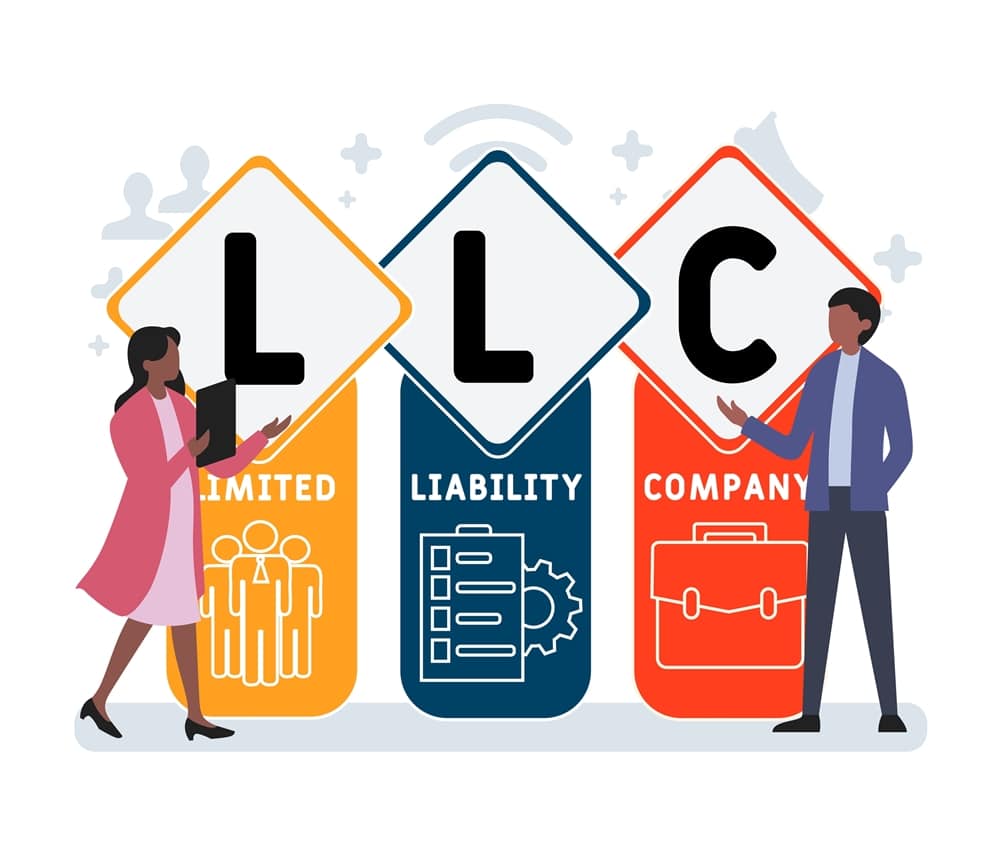If you are in the process of founding your startup or just thinking about going into entrepreneurship, you will be overwhelmed with many business terms that may or may not be familiar to you. That is why we decided to break down entrepreneurship vocabulary for all the people out there struggling to get a grip on them.
When you finish our guide on entrepreneurship terminology, you will be able to differentiate mergers and acquisitions, know the difference between angel investors and other investors, and master startup language.
So, let’s see what our essential dictionary of entrepreneur vocabulary contains.

Full entrepreneur vocabulary
Knowing entrepreneurship vocabulary helps you effectively communicate with other entrepreneurs, investors, and professionals in the industry. When entering the startup world, you will start to build networking with future partners.
When you know the jargon, you will be able to participate in relevant discussions, events, and conferences. Also, knowing the entrepreneurship terminology enables you to keep up with industry publications, podcasts, and blogs. You will be able to keep up with trends and react proactively on market.
Here are our top 50 picks from entrepreneurship vocabulary (sorted alphabetically):
Accelerator
A program or organization that provides support, resources, and mentorship for the faster growth of startups and small businesses.
Acquisition
Acquisition refers to the process of one company purchasing another company or a part of it, either through a stock purchase or asset purchase. It is often used alongside the term merger but they are not interchangeable. A merger is a business change when two companies are combined into one larger company.
Advertising
Advertising is the practice of promoting your products or services to a vast audience. For attracting attention are used various channels, such as paid ads on social networks, broadcast, or print media.
Angel Investor
An angel investor is someone who provides financial support to early-stage startups or entrepreneurs in exchange for a share of ownership in the company. There are lots of websites that connect startups with angel investors, such as Angel Investment Network.
They are a very important source of funding for many startups, while they also offer expertise, connections, and industry knowledge to help the company grow and succeed. When you have a stable business, you will easier attract other investors.
Appraisal
In terms of business, an appraisal is a process of estimating the value of some asset, typically for buying, selling, or merging a company or for tax purposes.
Associate or partner
When two people start a business together, they are called associates or partners. The share in the partnership is determined by the contract.
Business Incubator
A business incubator is a program designed to support the development and growth of new businesses. They usually provide office spaces, training, and support services in the early startup stages.

Business valuation
Determining the economic worth of a business and all of its assets.
Business model
The business model represents one of the fundamental terms used in entrepreneurship terminology. It is a framework that outlines the structure and key elements of how a company creates, delivers, captures value, and makes a profit. They can be classified by numerous characteristics, and some of the most common include B2B (business-to-business), B2C (business-to-consumer), B2M (business-to-many), freemium, franchise, subscription, etc.
Capital
Capital is anything that brings benefits to the owner and can be invested in the business.
Cash flow
The movement of cash in and out of a company. It includes revenue, expenses, and investments.
Copyright
It is a legal concept that grants the creators of original works exclusive rights to control and profit from their intellectual property.
You should protect with copyright any unique materials you use for your business to prevent others from making money from your property without consent.
Corporation
It represents a legal entity that is separate and distinct from its owners, also known as shareholders. The main advantage of a corporation is limited liability, meaning that it shields individuals from personal liability for any losses a corporation may experience.
Crowdfunding
This is a relatively new concept of backing up small businesses or startups by using an online platform where you raise money from many small donations instead of looking for big investors. Some of the platforms you can use for your company are Kickstarter or GoFundMe.
Customer relationship management (CRM)
The technology used to manage and analyze relationships and interactions with current and potential customers.
Debt financing
Obtaining funds by selling debt instruments to investors or taking loans from financial institutions.
Due Diligence
The process of conducting a thorough investigation and audit of a company or business before entering into a transaction or making an investment. Due diligence should be done before any major agreement to assess all the benefits and disadvantages of that business move.
Elevator Pitch
A brief, direct message from one person to another to outline a business idea.
In entrepreneurial terms, a business owner should be able to summarize all the key points of their idea in a pitch that lasts no longer than 60 seconds (preferably less). The goal of an elevator pitch is to grab the listener’s attention and explain why your idea matters to potential investors, customers, or supporters.

Entrepreneur
Of course, we cannot create a good entrepreneurship vocabulary without its best-known term. But how is an entrepreneur defined?
The term “entrepreneur” is used to describe an individual who starts a new business solely and takes all financial risk on himself. He usually invests his money or, if he’s lucky enough, finds investors to back him up.
Freelancer
A self-employed individual who provides services to clients on a project-by-project basis.
Fledgling
This is a term used for a new company struggling in the market. They don’t have enough experience to tackle the obstacles and need help.
General partnership
A type of organizational structure where every (general) partner shares full responsibilities for the incomes and losses of the company.
Investor
The most important partner of the business project. An investor is a person or business entity that puts their money into a project with the expectation of receiving a profit or a return on their investment.
If you are a new entrepreneur who is just starting, you will need investors to provide the money to put your ideas into action.
Intrapreneur
Intrapreneur is someone who has the mindset of an entrepreneur, but their skills and ideas are developing within an existing company.
Joint venture
A union between two or more companies where they share ownership, returns, and risks. Joint ventures are usually formed between companies that have complementary strengths and can benefit from working together.
Limited Liability Company (LLC)
This is a US-specific type of company which is a legal entity that’s not taxable itself and distributes the profits between its owners. In an LLC, the owners, who are called members, are not personally liable for the company’s debts, like in a corporation.

Limited Partnership
This type of business is similar to the general partnership we mentioned earlier, but in a limited partnership, we have a relationship where at least one partner is a general one, and others are called “limited”.
The general partner(s) manage the business and are personally liable for the partnership’s debts and obligations, while limited partner(s) are only liable for the partnership’s debts up to the amount of their investment.
Line of credit
If you need to borrow certain funds but don’t know how much you need, you can open a line of credit from a loaning institution. With the line of credit, you withdraw the needed amount (within the amount you agreed upon) and pay interest on what you’ve borrowed.
Launch
The prime start of your business or releasing a new product on the market.
Market research
Gathering and analyzing information about a market to understand customers, competitors, and industry trends. You cannot come up with a successful business plan without quality conducted market research.
Market structure
Market structure refers to characteristics of a market that determine how prices are set and how supply and demand interact. There are four different market structures: perfect competition, monopolistic competition, monopoly, and oligopoly.
Market segmentation
The process of dividing a market into smaller parts based on common characteristics. Market segmentation is needed if you want to target a specific audience with your marketing strategy.
Networking
In entrepreneur vocabulary, networking occupies an important place. It is essential for your startups, as it helps to establish connections, build relationships, and create opportunities for growth and success. You can acquire new partners and connections by attending industry events, such as trade shows, summits, or conferences & seminars.

Outsourcing
The practice of hiring an external company or individual to do something that is typically handled internally. When a business estimate that doing something inside the company will cost more than delegating it to another entity, it is outsourced to an external company.
For example, if you cannot hire a professional accountant, you can outsource it to a licensed firm. Or if it is too costly to maintain an HR division, you can reach out to freelancers to do those tasks for you.
Profit
The main purpose of your business. Profit represents the amount of money left after the deduction of all expenses from the total revenue.
Patent
A form of intellectual property that grants exclusive rights to an inventor for their discovery. It prevents others from making, using, or selling the patented invention for a certain amount of time.
Proof of Concept
A demonstration that will show if an idea, product, or service has market potential.
Public Relations (PR)
Managing the communication and relationships between an organization and its various stakeholders. PR is often key to establishing and growing brand awareness and a positive image of the company.
Return on investment (ROI)
A financial ratio shows the amount of profit or loss generated from an investment. It is calculated by dividing the profit or loss of an investment by the initial cost of the investment.
Seed funding
Initial capital is provided to a business or entrepreneur to support the early stages of the start-up.
Side hustle
In entrepreneurship vocabulary, side hustle refers to a business project someone is working on part-time while still working on his full-time job.
Social media marketing
Marketing strategy takes place on social networks for promoting a business.

Start-up
A company or organization is in its early stages of development. It is usually started by an entrepreneur (or several) who are fully responsible for its success.
Strategic alliance
Partnership or collaboration between two or more companies that work together to achieve a shared goal.
For example, if your business produces beverages, you can offer strategic alliances to restaurants and coffees in your area. That way, you will reach new customers and raise your brand awareness, and in turn, restaurants will get your product with discounts. You are both supporting each other’s business.
Take risks
Trying to catch the opportunity by making decisions that don’t have a certain outcome. Many decisions business owners must make will be like this. Especially if their businesses are in their early stages and they need to make strategic choices.
Target market
In entrepreneurship terminology, a target market is a specific group of customers to whom a company aims to sell its products or services. It is very important to identify your target market before creating a marketing strategy.
Trademark
A trademark is a distinctive symbol, word, phrase, design, or combination of those signs that differentiate the products or services of one business from those of another. It is an important part of developing and establishing a company’s brand because it ensures no one can copy your branding.
Venture
A project or business idea could involve a lot of risks.
Venture capital
Capital invested in projects with significant risk. Investors expect an equity stake in the company and a share in the company’s future profits.
Vision statement
A document in which stakeholders can read all the present and future objectives of the company. It also contains the company’s mission, vision, and goals.
Entrepreneurship vocabulary: conclusion
When you get familiar with this entrepreneurship terminology, you will easier make a connection with your potential partners. Business communication and the creation of networking will be much faster for new business owners.
